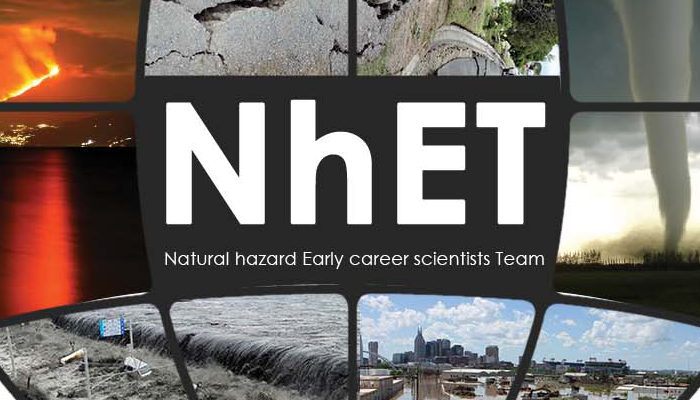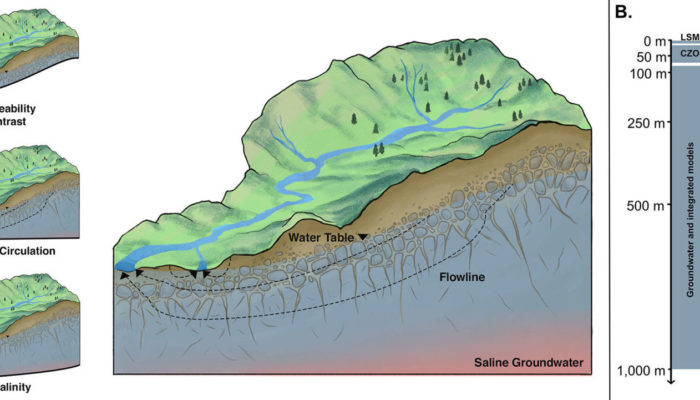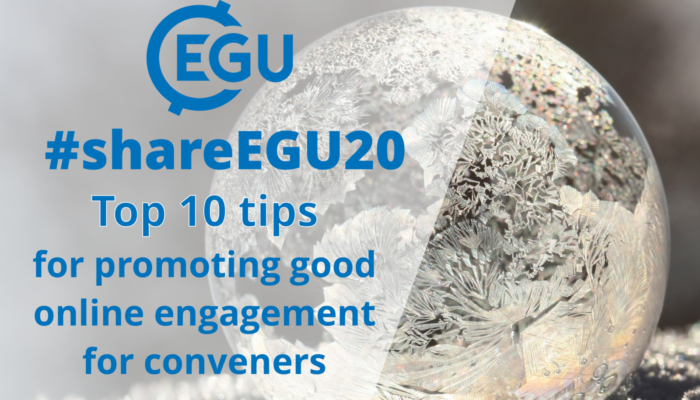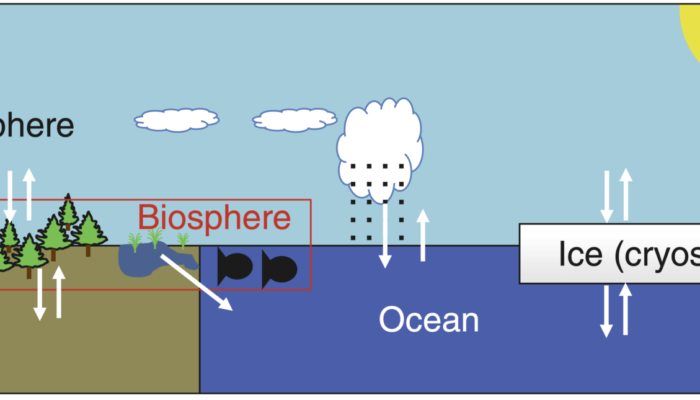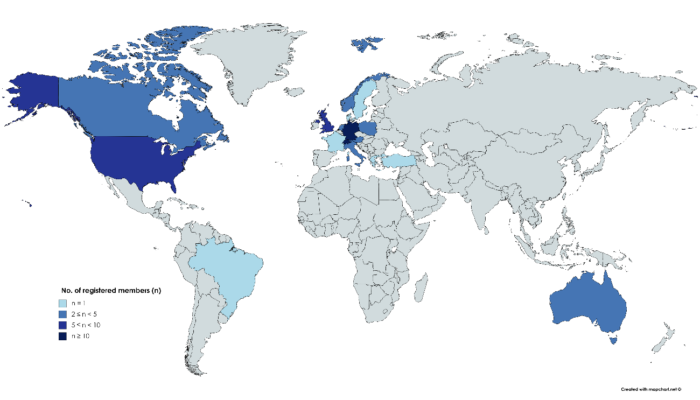We are all studying geodynamics, but what does that really mean? Do we limit ourselves to the mantle? The lithosphere? The equations we solve? In this Wit & Wisdom post, Colin Hardy, PhD student in fluid dynamics at the University of Leeds, United Kingdom, makes his case for an often forgotten boundary condition of mantle geodynamicists: the core. Let us start with the basics and break down th ...[Read More]
If you didn't find what you was looking for try searching again.
Tectonics and Structural Geology
#ShareEGU20: An online EGU General assembly?
In mid-March it was decided that the EGU conference in Vienna was to be cancelled, with an alternative proposed, the online GA. Being the first EGU general assembly to be held online, many people are doubtful about many aspects, such as how the conference will be organised and conducted. EGU has been providing answers to questions on their page and on Geolog, and we thought we would provide some h ...[Read More]
Tectonics and Structural Geology
#ShareEGU20: How to turn your research into an attractive display
In response to the growing concerns over the spread of the coronavirus and travel restrictions, in-person attendance for the EGU General Assembly 2020 in Vienna has been cancelled. The conference is instead being transformed into a virtual event, where attendees can remotely share their research by uploading presentation material online. Let’s be honest: digital alternatives don’t replicate the i ...[Read More]
Natural Hazards
EGU 2020: Sharing Geoscience Online, NhET activities
We are currently living uncertain times due to the COVID-19 pandemic, and we hope that you and your relatives are healthy and safe. As you may know by now, the physical EGU 2020 General Assembly was cancelled. To keep science in the front line, provide a discussion and sharing platform also at these times, it was replaced by the first interactive and digital EGU 2020: Sharing Geoscience Online ev ...[Read More]
WaterUnderground
Re-thinking watersheds from the bottom up
n a recent commentary published in Water Resources Research, a group of us asked the question: “Where is the bottom of a watershed?” Discussions around the role of deeper groundwater in the hydrologic cycle within this group were triggered by a lecture that Jennifer McIntosh delivered at the University of Saskatchewan’s Global Institute for Water Security in 2018. The discussions around this lectu ...[Read More]
GeoLog
#shareEGU20: Top 10 tips for promoting good online engagement for conveners
So, you’ve taken the plunge – you have decided to upload your materials as an author, or committed to hosting your session with your fellow conveners, or perhaps started to add sessions to your personal programme as a participant. What comes next? Interacting with other researchers using one of our new platforms! During the next two weeks we will post more information about what those platforms wi ...[Read More]
Cryospheric Sciences
For dummies – About ice sheet models and their cold relationship to climate models
Climate models help us understand processes occurring in and between atmosphere, oceans, land and ice-covered regions of our planet. One important process impacting all of us is sea level rise, and the ice sheets of Antarctica and Greenland (currently losing more and more ice) play a crucial role in future sea level rise projections. Even though climate models can be very complex and include many ...[Read More]
Geodynamics
The Sassy Scientist – EGU GA 2020 RIP: MTFBWY
Tokío’s contract is about to expire. Confident she would convince someone to hire her through expert presentations, astute questions, insightful discussions and uncanny charm, she now frets: I was counting on networking at the EGU GA to find a new job, but now I can’t. What can I do? Dear Tokío, I’ve got a bad feeling about this. Don’t trap yourself in a panicking fit just ...[Read More]
GeoLog
EGU statement of support for the European Research Council
The European Research Council (ERC) is the sole European science funding agency that is designed and governed by scientists. As such, it has become one of the world’s leading and most respected funders of frontier research, with more than 70% of completed projects leading to discoveries or major advances. The ERC’s investigator-driven approach and allocation of grants based solely on scientific ex ...[Read More]
Hydrological Sciences
WomenInHydrology – a new initiative to connect female hydrologists worldwide
Geographical location of the WomenInHydrology members by their workplace, stand: 31.03.2020 What is WomenInHydrology about? WomenInHydrology is a Google Group mailing list created to encourage and foster the active participation of female hydrologists in the hydrological community. While the information content is not intended to be only women-oriented, the mailing list is dedicated specifically t ...[Read More]



